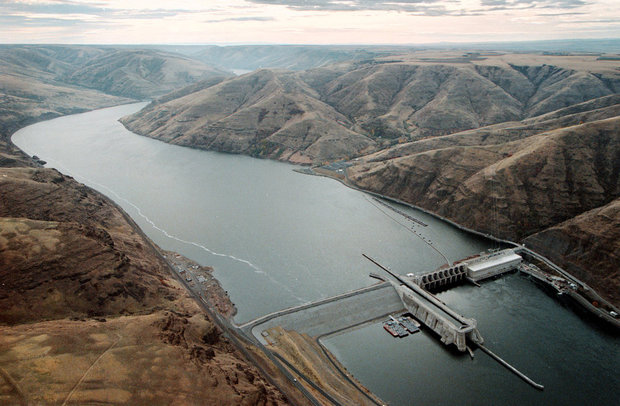forum
library
tutorial
contact

Significant Hydro-Related
Federal Legislation Pending
by Elizabeth McCormick, Andrea Wortzel & Troutman Pepper
JD Supra, March 31, 2021
|
the film forum library tutorial contact |

|
Significant Hydro-Related
by Elizabeth McCormick, Andrea Wortzel & Troutman Pepper
|
 On February 6, U.S. Rep. Mike Simpson (R-Idaho) introduced a proposal that would attempt to restore northwest salmon populations by breaching four dams managed by the Bonneville Power Administration (BPA) on the Lower Snake River in Idaho.
On February 6, U.S. Rep. Mike Simpson (R-Idaho) introduced a proposal that would attempt to restore northwest salmon populations by breaching four dams managed by the Bonneville Power Administration (BPA) on the Lower Snake River in Idaho.
The four dams -- the Ice Harbor, Lower Monumental, Little Goose, and Lower Granite dams -- are part of the Federal Columbia River Power System. The dams are a significant source of renewable energy in the Northwest, provide irrigation for high-value farmland, and enable the transportation of large shipments of grain and other crops that are freighted along the Snake River. However, the dams have been controversial since their completion in the 1970s because of their impacts on salmon populations. Despite fish ladders and other mechanisms for fish passage, the dams have continued to inhibit the passage of salmon to and from the Pacific Ocean.
Simpson's $33.5 billion plan, which he stated is intended to end the long-running "salmon wars" between tribes, farmers, and electric utilities, would remove the four dams in an attempt to restore salmon populations in Idaho and invest $10 billion to replace the power produced by the dams, which together have over 2,600 megawatts (MW) of capacity. Simpson and proponents of his plan argue that the power generated by the dams is increasingly costly compared to other renewable sources of generation. Native American Tribes, for whom salmon is so culturally significant, also support Simpson's plan. Opponents of Simpson's plan, however, are concerned that the plan fails to provide details on how the power generated by the dams would be replaced. Farmers and ranchers also oppose the plan for the impact it would have on irrigation and transportation.
Other aspects of Simpson's proposal include:
U.S. Rep. Cathy McMorris Rodgers (R-WA) released a statement opposing Simpson's plan and on March 3 introduced her own proposal, the Hydropower Clean Energy Future Act, H.R. 1588, to help the United States "develop the next-generation hydro technology needed to increase clean energy production, further decrease environmental impact, and allow America to lead on sustainability."
H.R. 1588 affirms the role of hydropower as an "essential renewable resource" and would require all Federal renewable purchase requirements to include hydropower. It also attempts to modernize and streamline the FERC licensing process by designating FERC as the lead agency for all Federal authorizations and for complying with any state or local environmental reviews and by clarifying responsibilities, setting schedules, and establishing mechanisms to resolve disputes among licensing parties. Additionally, H.R. 1588 provides exemptions from certain requirements of the Federal Power Act for small hydropower projects that are unlikely to jeopardize threatened or endangered species or critical habitat and establishes an expedited licensing process for "next-generation" hydropower projects that use certain technologies that protect or enhance environmental resources.
The full text of H.R. 1588 is available here.
learn more on topics covered in the film
see the video
read the script
learn the songs
discussion forum
